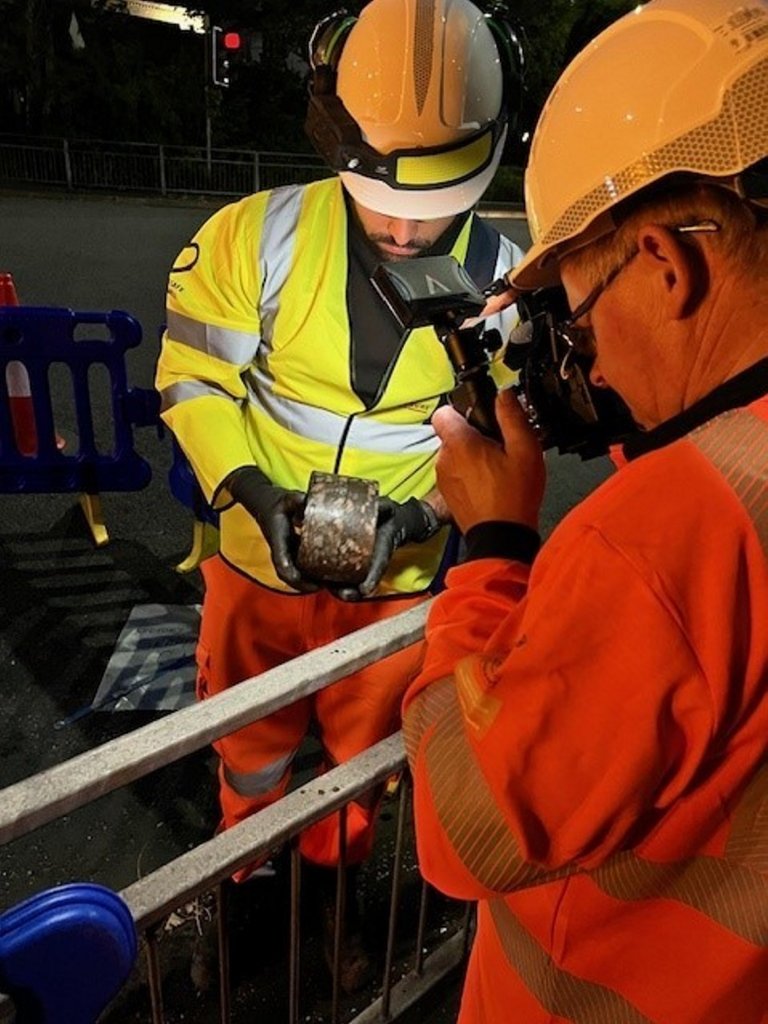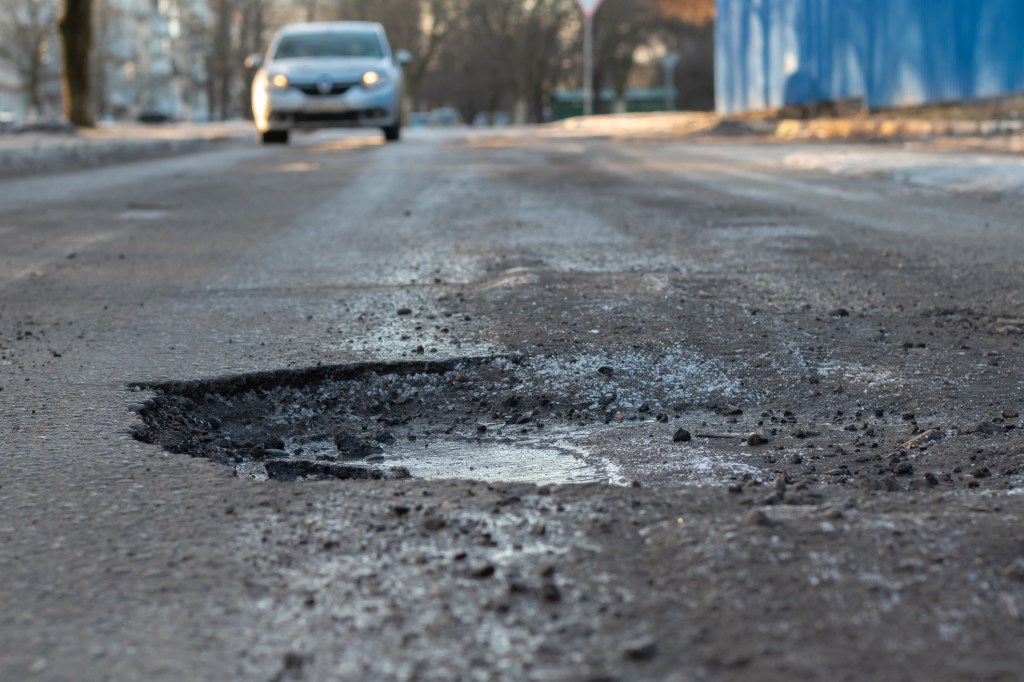This article was originally written by James Connolly for SWNS — the U.K.’s largest independent news agency, providing globally relevant original, verified, and engaging content to the world’s leading media outlets.
Potholes are damaging, dangerous, and just plain annoying, but an ultra-strong substance could pave the way for smoother roads in our future. Derived from graphite, graphene is 1 million times thinner than a human hair yet stronger than steel and diamond — and in a recent trial in Essex, England, graphene-enhanced asphalt was successfully rolled out on a public road.
“We are very encouraged with the results of the trial,” Councillor Tom Cunningham told SWNS. “These dramatic improvements are what we need in the long term, as it means our roads will potentially need less repairing and maintenance.”

The trial began in 2022 and deployed a surface material containing graphene, which is considered the strongest material in the world. When graphene is added to asphalt, the resulting substance — called Gipave — is more flexible than asphalt alone and less likely to crack in cold temperatures or soften in warm ones. It’s also thought to be more environmentally friendly, as fewer repairs could result in fewer carbon emissions. And while Gipave is more expensive than traditional hot rolled asphalt, it’s expected to be cheaper over a road’s lifetime.
Paul Goosey, managing director of the material’s manufacturer, Eurovia, explained to the BBC that traditional hot rolled asphalt is prone to developing grooves and indentations, while stone mastic asphalt tends to collect water in its gaps, leading to potholes. The current method of fixing those bothersome road impediments in Essex involves simply cutting into the road surrounding the holes, then filling in the gaps with hot asphalt.
But the early results of the graphene trial demonstrate that it’s far more durable than standard asphalt. The two were laid out on a stretch of the A1016 parkway to foster a side-by-side comparison, and three years later, samples were removed and lab tested by pavement engineering firm Jean Lefebvre UK.

“We found the graphene-enhanced product performed 10% better in the stiffness tests and 20% better in terms of water sensitivity,” James Stokes, business unit manager for Jean Lefebre UK, told the BBC.
And the testing goes beyond the Essex trial: In Sept. 2024, National Highways began conducting a trial on a section of the A12 in England. “It’s encouraging to move innovative road materials from the lab to the real world, as they promise more durability and efficiency, while maintaining road user safety and lowering carbon emissions,” project sponsor Umesh Parajuli said in a news release at the time. “This trial of graphene-enhanced asphalt supports our 2040 net zero target for construction and maintenance and could provide significant whole-life benefits, improving the service life of both local and national networks.”
As for the Essex County Council, they must now decide whether to adopt the graphene-enhanced asphalt as part of road repairs on a permanent basis. “Essex has 5,000 miles of roads and some of the highest levels of traffic in the country, so it is paramount we find new and efficient ways of maintaining them,” Cunningham told SWNS. “Innovative approaches to road maintenance help us to create a county that is accessible to all, while also giving residents the best value for their money.”
RELATED: How Asphalt Art Is Beautifying Roads and Making Them Safer












